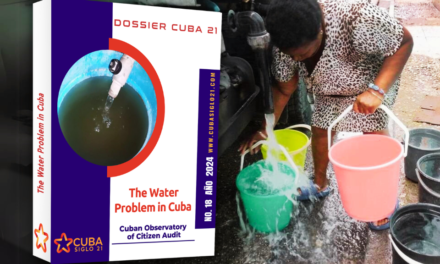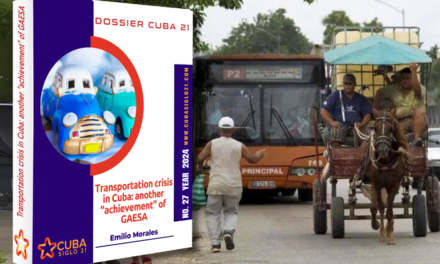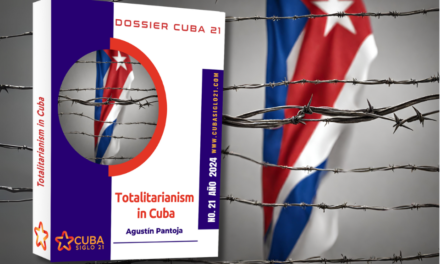Descargar Informe completo
Download Report in English
Public Insecurity Report. January – June 2025
Crime in Cuba: historic record and state neglect
On July 31, during a meeting of the Group for the Prevention and Combating of Crime, which evaluated crime indicators for the first half of 2025, Cuban Prime Minister Manuel Marrero Cruz stated that “the trend is downward, but the indicators remain high.”
The Cuban Observatory of Citizen Auditing (OCAC) documented 1,319 verified crimes between January and June 2025, almost five times more than in the same period in 2023 and more than all that happened throughout 2024. This represents an average of 7.3 crimes per day, evidencing an unprecedented escalation in crime and a diversification of criminal types.

Main findings
- Robberies: 721 cases (including 193 cases of cattle theft and slaughter), confirming the direct link between the food crisis and crime. Robberies representing the most prevalent crime during the period and an average of four cases per day.
- Murders: 63, with victims including women, minors, and the elderly; 16 of them classified as femicides.
- Assaults and attacks: 99 cases, with a high incidence in Havana, Matanzas, and Santiago de Cuba.
- Trafficking Drugs: 198 reports, a category included for the first time in our research reports, with more than half concentrated in Havana. For the first time since the OCAC began its systematic monitoring of reports, crimes related to drug trafficking, distribution, and consumption are presented as a separate category. This decision was made due to the notable increase in these reports
- Other crimes: 238, including vandalism, illegal possession of weapons, and smuggling.
In total, 1,588 people participated in these crimes. Ninety percent of the perpetrators were men, while the victims’ included men, women, minors, and the elderly, reflecting a cross-cutting impact.
Risk factors
- Growing availability of firearms: at least 35 documented cases in the first half of the year.
- Expansion of drug trafficking: an emerging phenomenon with a rapidly growing tendency to consolidate into urban networks.
- Crimes against property and livestock driven by food shortages and economic collapse.
Conclusions
A key aspect for understanding this situation is the disconnect between the priorities of the Ministry of the Interior (MININT) and the criminal reality of the country. Far from placing the fight against common crime at the forefront, the MININT concentrates its resources on repressing political dissent and monitoring critical citizens, relegating public safety to the background. This orientation explains why crime is growing and diversifying, despite abundant official propaganda about supposed “offensives against crime.”
This subordination of the security apparatus to political control and the economic interests of GAESA makes the MININT an instrument of a mafia elite rather than a guarantor of public tranquility. The recent leak of GAESA’s million-dollar accounts in tax havens illustrates how the ruling elite preserves its privileges while neglecting the basic needs of the population and maintaining the police and security forces as its repressive arm.
Consequently, the growing deterioration of public security is also the result of this logic, as while weapons, intelligence, and personnel are allocated to control protests and stifle dissent, common crime expands unchecked. The contrast is stark: a repressive state against the opposition, but absent in the face of crime, with citizens caught in the middle of a double insecurity— that of the criminal elements and of the repressive apparatus itself.
Taken together, the data refute official statements about a supposed reduction in crime presented by Prime Minister Marrero and paint a picture of growing citizen insecurity, marked by the diversification of crime types, an increase in armed violence, and the deepening of socioeconomic factors that fuel criminal activity, all aggravated by a mafia state that continues to prioritize political repression for its own security over the safety of the people.







